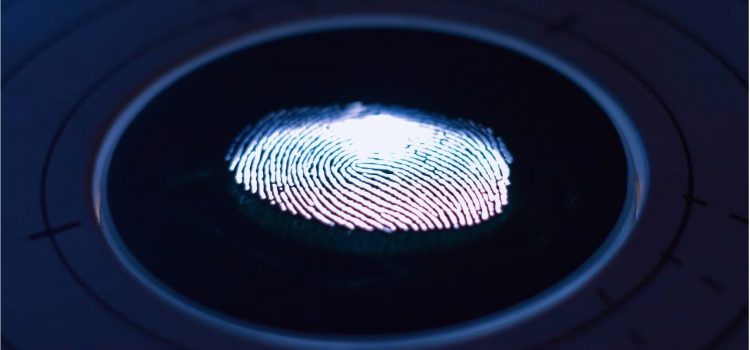
This is a free excerpt from one of Shortform’s Articles. We give you all the important information you need to know about current events and more.
Don't miss out on the whole story. Sign up for a free trial here .
What’s the psychology behind true crime obsession? What are the warning signs of being obsessed with true crime?
From anxiously awaiting updates on the college student murders in Idaho, to bingeing the latest episodes of My Favorite Murder, we love a true crime story. However, the psychology behind true crime obsession reveals the problems this obsession can cause and how to avoid them.
Read on to learn the consequences of true crime obsession and the psychology behind it.
Why Are We Attracted to True Crime?
News sites have prominently featured headlines about the murders of four Idaho college students, as Americans devour updates on every detail of the case. Last year, the same happened with the case of Gabby Petito, who was killed by her boyfriend Brian Laundrie. Meanwhile, the murder cases documented in Netflix’s Making a Murderer and the Serial podcast have enjoyed explosive popularity, and Forensic Files II is HLN network’s highest-rated show ever. Why are we so obsessed with true crime stories and what’s the psychology behind true crime obsession?
Our obsession with true crime cases may be related to a few factors:
- They appeal to our natural need to make sense of the world, especially to understand the potential threats in our environments.
- They give us the opportunity to process our fears in a safe setting.
- We want to see bad people brought to justice, so we’re invested in the outcome.
In this article we’ll take a look at each of these in more depth, discussing the psychology behind true crime obsession. We’ll then explain the effects this obsession might have on us, as well as on society and the criminal investigation of the cases.
True Crime Stories Help Us Make Sense of the World
The field of evolutionary psychology is concerned with explaining how the ways we think and behave today are related to the survival instincts we developed evolutionarily. In the case of our obsession with true crime, the field of psychology explains that we feel driven to understand the minds and motives of killers because we’re wired to try to make sense of threats in our environments. We want to figure out what would make people do things that would be unthinkable to us.
And, beyond just a natural drive to make sense of threats, studying the details of violent crime cases may make us feel like we’d have a better idea of what to do if we were ever in that situation. So, following these cases gives our brains a rehearsal for the possibility of being a victim of a crime at some point. This overlaps with the next factor, our need to process the fear that comes with that possibility.
True Crime Stories Help Us Process Our Fear
Statistics suggest that women tend to be more interested in the true crime genre than men. This may give us more insight into why specific types of crimes tend to be the most alluring.
Research shows that the crimes that receive the most attention are those involving a male killer of female victims, and women are most drawn to cases where the victim is similar to themselves. The conclusion in psychology is that, in addition to the reason explained above (rehearsing the scenario), an obsession with following a true crime story may be a way for women to feel the fear associated with that threat in a safe setting.
When we read about or watch these stories, we experience a rush of adrenaline as we imagine being in the situation. And when we can experience that physiological reaction while knowing we’re safe, we get the chance to subconsciously process those deep fears.
True Crime Stories Are Opportunities for Justice
Finally, in addition to understanding threats and processing fears, psychology reveals that our obsession with true crime appeals to our desire to see justice served. We want a tragedy with closure, where the perpetrator is punished. This factor is what turns some consumers of true crime stories into internet sleuths and activists. And this also means we’re invested in ensuring the right person is convicted for these crimes.
This appeal to justice is also likely what drives “internet sleuthing”—an attempt by citizens to undertake their own online detective work to try to solve crimes. This sleuthing can receive widespread exposure and attention via social media platforms, and in some cases it’s actually helped solve crimes. But it can also cause serious problems, as we’ll see in the next section.
What Problems Can True Crime Obsession Cause?
In the age of technology and media saturation, our interests can easily turn into obsessions. Today we’re exposed to stories of violent crime exponentially more than people were in the past.
Potentially, there are two major issues with a true crime obsession:
- The cases and criminal justice process can be affected, especially when we’re fixated on a crime that’s under investigation.
- We can be affected psychologically, triggering stress and anxiety and skewing our perception of the world.
It Can Affect the Criminal Case
As mentioned in the previous section, internet sleuthing can cause serious issues with ongoing investigations, both for the investigators and for innocent bystanders.
In the recent Idaho murder case, TikTok fueled an online witch hunt. Amateur sleuths posted accusations pointing the finger at the surviving roommates, a food truck owner, and a professor at the university where the victims were students. Many of these videos have racked up over a million views, with posters competing for clicks by posting the wildest theories. This makes the victims of a tragedy into nothing more than characters in an entertaining story, and it could lead to very real dangerous situations for those accused. The Moscow, Idaho police department became concerned about how this could interfere with their investigation and had to establish a “rumor control” page on their website.
It Can Affect Our Mental Health
Finally, according to psychology, overconsumption or obsession with true crime can affect our mental health by giving us an exaggerated sense of how common violent crime is, and of the likelihood of being the victim of one. Our fear can then become disproportionate to our risk. Having too much exposure to these stories can cause stress, anxiety, nightmares, and paranoia. Real crime-solving professionals have training in mental health to avoid these issues, and they still face them.
So, if you enjoy learning about crime through following these stories, just be on the lookout for any signs that it could be negatively affecting your mental health, such as:
- You find yourself dwelling on it. You’re thinking about the case hours after you read about it, and compulsively need to check in for updates.
- You find yourself fearful of going out, or of being home alone. You may repeatedly check that your doors are locked in the evenings.
- You have signs of anxiety regularly, like rapid heartbeat, trouble sleeping, and constant tension.
If you experience any of these symptoms, consider whether they may be resulting from your true crime consumption, and take breaks. True crime may be an interest best pursued in moderation.

Want to fast-track your learning? With Shortform, you’ll gain insights you won't find anywhere else .
Here's what you’ll get when you sign up for Shortform :
- Complicated ideas explained in simple and concise ways
- Smart analysis that connects what you’re reading to other key concepts
- Writing with zero fluff because we know how important your time is






